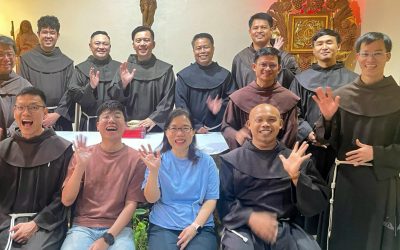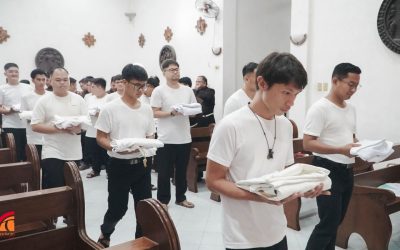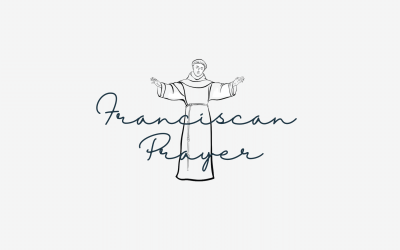
With the launch of the Synodal process from 2021 to 2023, Pope Francis is addressing the systemic issues affecting the global Catholic Church.
Vatican Council II presented a vision of Church for the new era of Church life leading into the new millennium. Essentially, it invited the Church to a new way of being (self-understanding) and acting.
Following Vatican II, Pope Paul VI instituted the Synod of Bishops as a permanent vehicle for the Pope and Bishops to lead the Church in a more collegial and collaborative way. It was to recover a new balance to the role of the Papacy vis-à-vis the bishops of the world.
The genius of Pope Francis is in initiating the Synodal process for the global Church where every diocese in the world would embark on this Synodal process leading up to the Synod of Bishops together with the lay faithful in 2023. This essentially brings the Synodal process from Pope-Bishop to Pope-Bishop- Diocese; from global to local. This means that every bishop in the world will have to understand his role in leading and empowering in this new way of Church that Vatican II put forward in 1965.
This Synodal process has to be seen together with the encyclical Fratelli Tutti, which takes its title from the address of St Francis to his brothers.
In an article in 2020, Gerard O’Connell quotes Anna Rowlands, professor of Catholic Social Thought, saying at the launch of Fratelli Tutti that Pope Francis offers “an extraordinary example of thought leadership” in this encyclical. She said that Pope Francis has offered the world, in the midst of the profoundly disorienting global situation marked by the pandemic, thought leadership on a global stage.

Principally, I think the process of the Synodal Church and the encyclical Fratelli Tutti invite us to a new level of dialogue among ourselves, among church hierarchy and laity. Vatican II offered a new paradigm of being and working, and now this process is inviting us to put this into practice, and actively engage one another with new eyes.
One of the challenges I foresee confronting dioceses is what I call the “choke points” to a smooth journey for the Church. As the Catholic Church’s hierarchy is built around a clerical structure of Bishops-Priests-Deacons, much of the Synodal journey will meet “choke points” at parish and diocesan offices. As it stands now, many programmes and projects that a parish or diocese undertakes depend very much on the powers that be; be it parish priest, priest directors, priest spiritual directors or bishops.
Much has been said in the past about “collaboration” in churches. Often what this means is “Father says this and we people carry out!” This new process of the Synodal Church calls for a change in mindset from “collaboration” as we have known and practised in the past to being “co-responsible”.
Laity, as Vatican Council II taught, is called to the apostolate, not by the largess of a priest or a bishop but by Jesus Christ himself, who at our baptism confers upon us the triple roles of Priest, Prophet and King; correlating to the roles of Sanctification, Teaching and Service.
A gift of St Francis to the Church is the sense of what it means to be in “fraternitas” (fraternity). This vision of fraternity invites us to see each other as more than roles and functions.
John Paul Tan, ofm
Every baptised person is called to the apostolate, each in his or her own way and capacity within the understanding of Church. The exercise of these three roles with renewed insight and empowerment will equip the Church to address pressing issues of humanity. We are called to be Church not only to worship in fitting liturgical settings and music, but also as Church to collectively read the signs of the times to discern what the Word is calling us to be and how we are to respond to the yearnings and cries of the men and women of our times, and yes, even to the cry of creation.
A gift of St Francis to the Church is the sense of what it means to be in “fraternitas” (fraternity). This vision of fraternity invites us to see each other as more than roles and functions. Fraternitas presupposes blood kinship from the Latin “fratres” meaning “brothers”. This relationship that is based on blood kinship links us more profoundly to one another than functional relationships in a commune (society or community).
Fratelli Tutti invites us to embark on a journey to dialogue and to see each other differently. Coupled with the Synodal process, can this be a new way of being Church?
For the new to emerge, the old ways of being and doing will have to give way, to be acknowledged and recognised as models that need to be reformed. The overly privileged place of the clerical class with the propensity for arbitrary decisions will need to be relooked in terms of service, empowerment of the laity, co-responsibility, transparency and accountability. In other words, a cultural overhaul is in order.
St Francis was a model of reform during his time. Pope Francis is proposing a radical reform of sorts, one that puts into practice what the fathers of Vatican Council II called for. My hope is that this Synodal way of being Church will not be a short- lived excitement for the Church but the beginning of a new way of being Church in the new millennium.
Friar John Paul Tan OFM





0 Comments